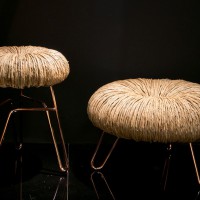
Donut Collection
2 September 2015
17 December 2014
The Korean artist Yeonju Sung, using photography as her primary means of expression, has recently exhibited at MIA (Milan Image Art Fair) an amazing series of photographs called ‘Wearable food’.
It’s about glossy and realistic images of garments of different shapes, manufactured with vegetables, fruit and healing herbs.
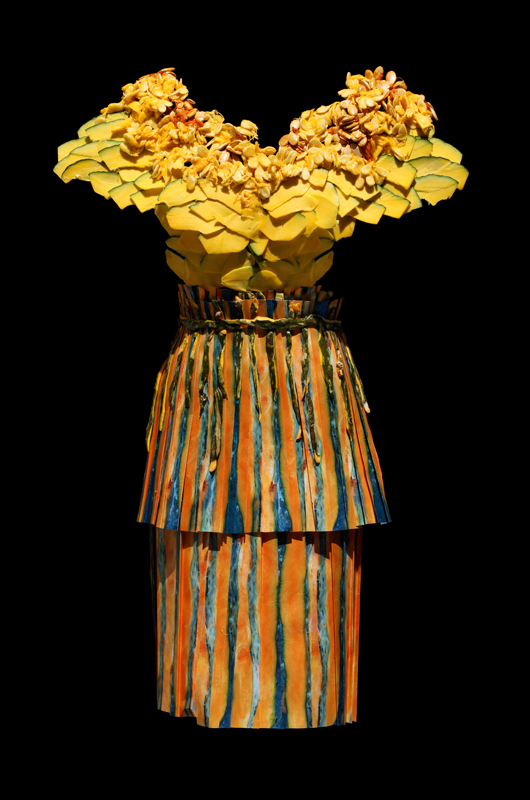
The collection for the autumn includes a dress of mango and papaya, one of sliced tomatoes and one of tomato skins, for the spring there are onions, then we have banana peels, braided chives, eggplant slices, and stems of burdock thistle, a Mediterranean plant with healing properties used in herbal medicine. At the origin of this unique collection, based on two key elements of our life, food and clothes, can be found a denial of functionality, food that is inedible and clothes that cannot be worn, and the idea of suggesting the contradiction between the perishable items and the fitting of the silhouette, tickles both vanity and the appetite.
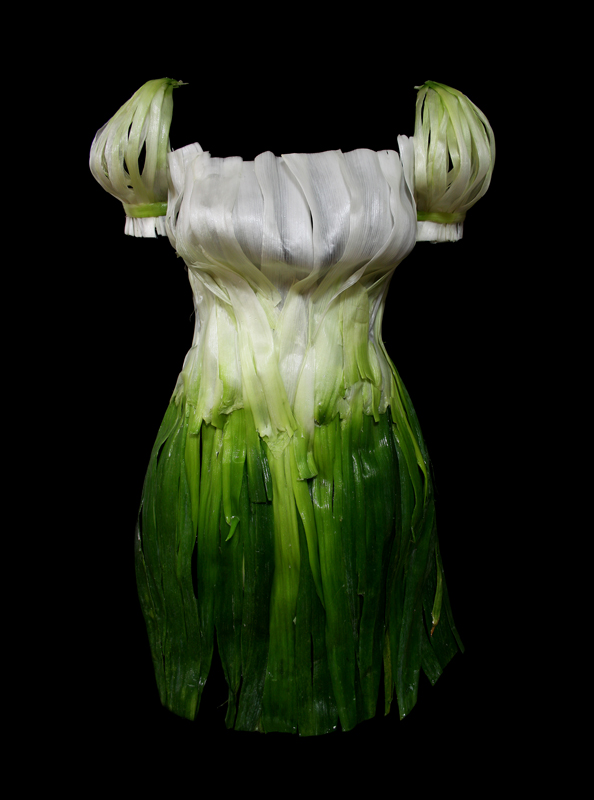
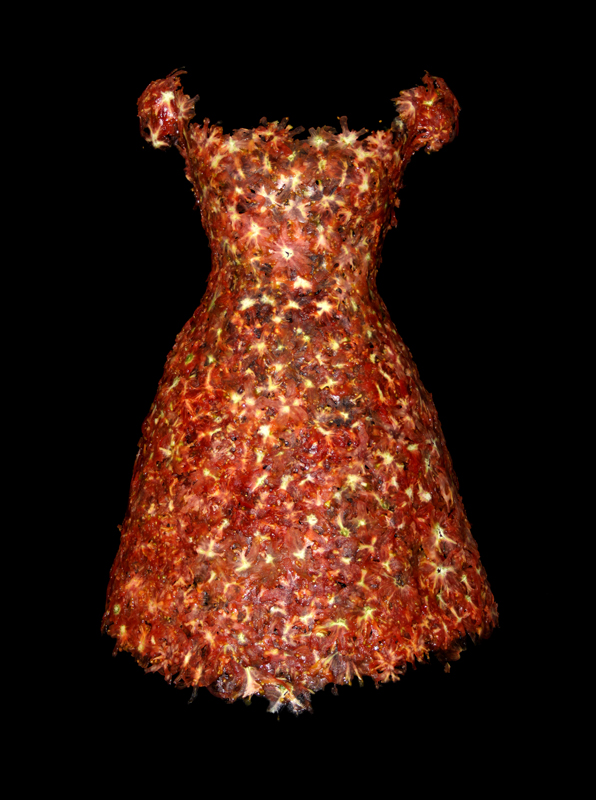
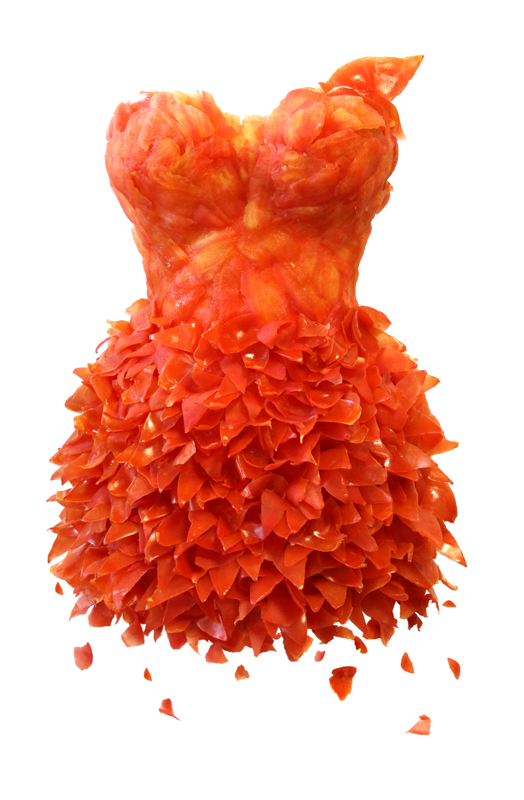
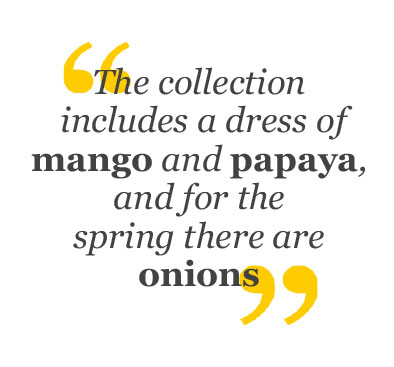
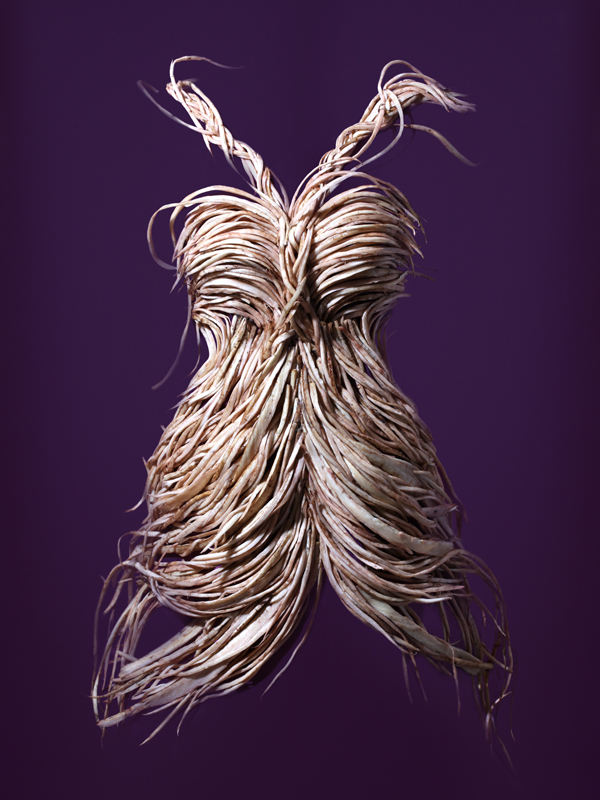
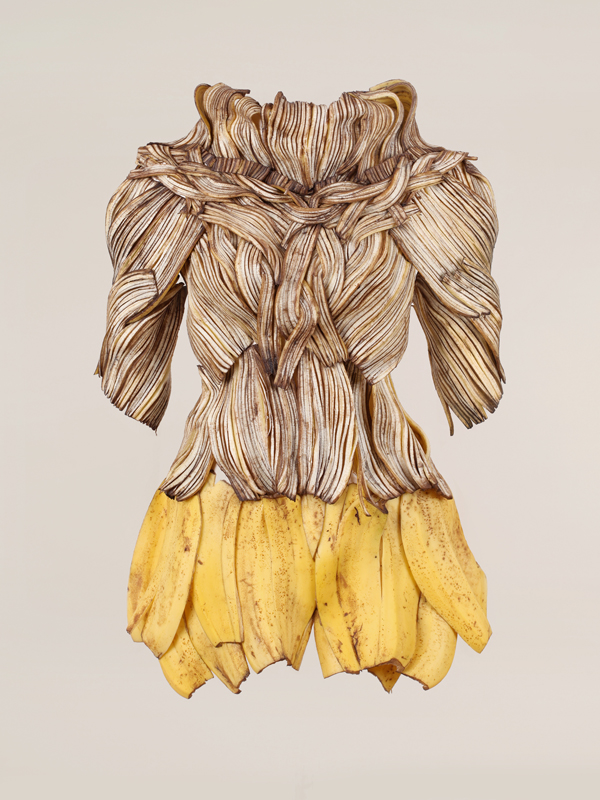

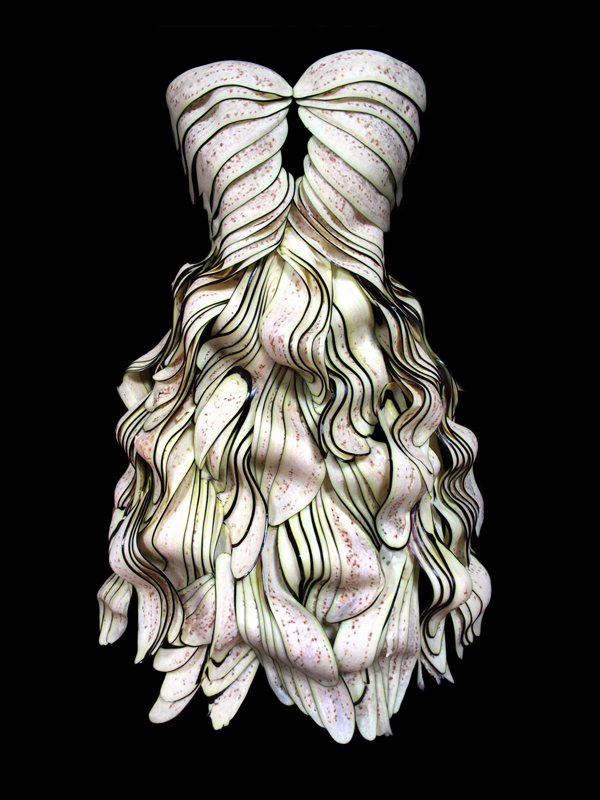
The Korean artist Yeonju Sung, using photography as her primary means of expression, has recently exhibited at MIA (Milan Image Art Fair) an amazing series of photographs called ‘Wearable food’.
It’s about glossy and realistic images of garments of different shapes, manufactured with vegetables, fruit and healing herbs.
The collection for the autumn includes a dress of mango and papaya, one of sliced tomatoes and one of tomato skins, for the spring there are onions, then we have banana peels, braided chives, eggplant slices, and stems of burdock thistle, a Mediterranean plant with healing properties used in herbal medicine. At the origin of this unique collection, based on two key elements of our life, food and clothes, can be found a denial of functionality, food that is inedible and clothes that cannot be worn, and the idea of suggesting the contradiction between the perishable items and the fitting of the silhouette, tickles both vanity and the appetite.

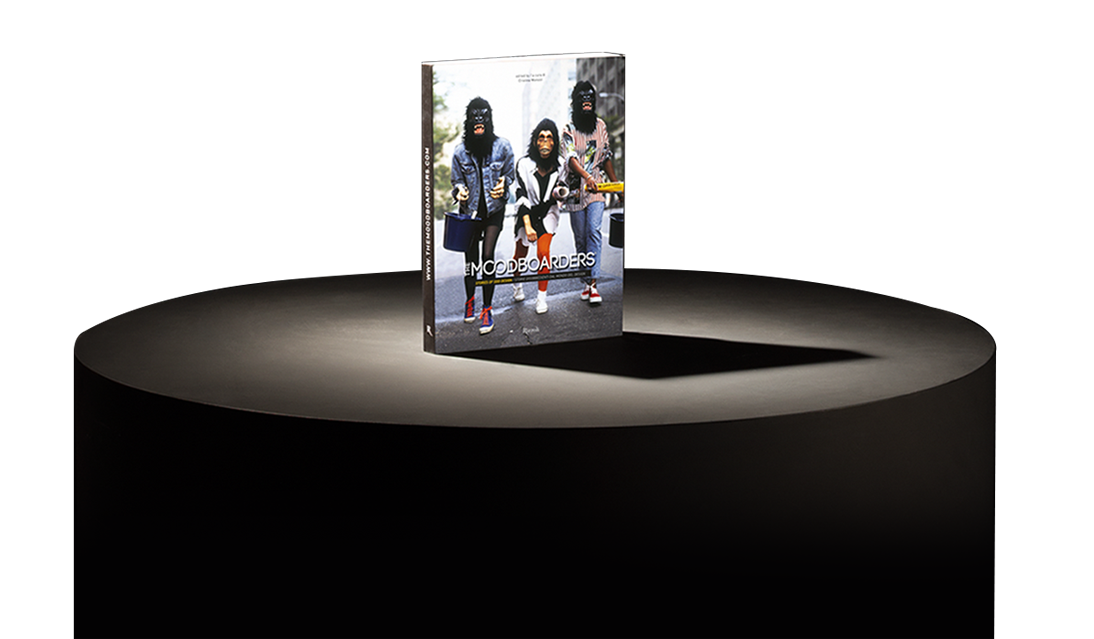

The Moodboarders is a glance into the design world, which, in all of its facets, captures the extraordinary even within the routine. It is a measure of the times. It is an antenna sensitive enough to pick-up on budding trends, emerging talents and neglected aesthetics. Instead of essays, we use brief tales to tune into the rhythm of our world. We travelled for a year without stopping, and seeing as the memory of this journey has not faded, we have chosen to edit a printed copy. We eliminated anything episodic, ephemeral or fading, maintaining a variety of articles that flow, without losing the element of surprise, the events caught taking place, and the creations having just bloomed.